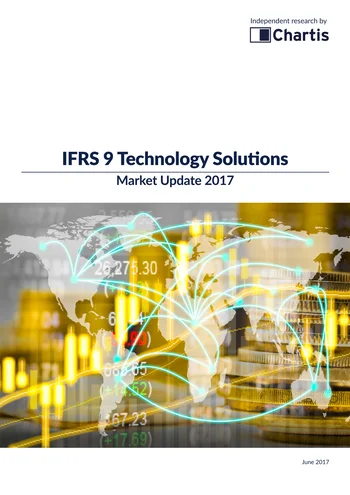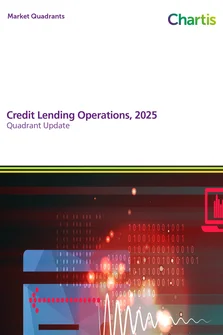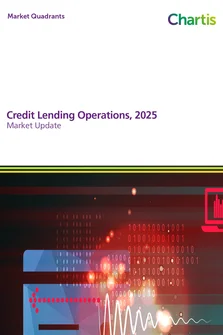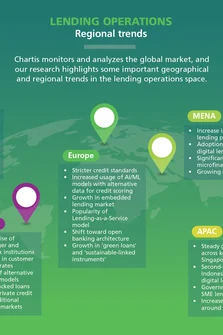<p>Like other regulatory mandates of the past decade, IFRS 9 is another transformational event for all financial institutions (FIs). In all likelihood, it will reduce FIs’ profits and retained earnings, increase their loan loss provisions, and have a negative impact on their regulatory and economic capital. To mitigate these impacts, FIs will have to rely heavily on the rigor of their data management and the quality of their data, and on the application of Expected Credit Loss (ECL) modeling and overall governance.</p>
<p>IFRS 9 is a mix of rules and principles, and its specific requirements and deliverables will be shaped by local interpretation. But implementing an IFRS 9 system is set to be more challenging than FIs had originally anticipated. IFRS 9’s impairment regime is proving to be the most problematic area: FIs are realizing that they will not be able to re-use their Basel implementations to the extent they had hoped.</p>
<p>The standard has three broad components that will affect FIs in varying ways:</p>
<ul>
<li>Classification and analytics.</li>
<li>ECL impairment.</li>
<li>Hedge accounting.</li>
</ul>
<p>As a result, FIs will face a variety of challenges around impairment, rollout and model governance, including:</p>
<ul>
<li>How to deal with gaps in data.</li>
<li>Problems with reconciling operations.</li>
<li>Managing the tension between the risk and finance departments.</li>
<li>Choosing the right model for the appropriate level of portfolio granularity.</li>
<li>A fragmented landscape of solutions.</li>
</ul>
<p>Many FIs, especially the larger global institutions, have addressed these issues, or at least have a plan in place. Others have chosen to adopt a patchwork of tactical short-term solutions to hit the deadlines. Many FIs, though, are behind schedule, and a few are relying on last-minute fixes from external providers, as well as extra support (and expense) from their auditors. In the past nine months, FIs have accelerated some parts of their IFRS 9 projects and delayed others, substituting tactical short-term components for longer-term strategic ones, communicating more effectively between departments<br />
to ease the big cultural shift required, ensuring they have effective model governance in place, and working hard on disclosures. Many aspire to re-use parts of their IFRS 9 systems for other reporting and analytical regulatory requirements, to establish an overall strategic finance, risk management and regulatory systems platform. For most FIs, though, this is a long way off; nevertheless it still provides a useful sales tool for some vendors and consultancies.</p>
<p>Because IFRS 9 is a demanding multi-disciplinary deliverable applied to a complex global marketplace, it is rare that one external vendor, or FIs’ in-house IT, modeling and data management department, can provide everything as a ‘one-stop shop’. So the vendor landscape is fragmented, and occupied by vendors specializing in enterprise financial accounting, macroeconomic and credit data provisioning, hedge and fair value accounting, credit risk analytics and modeling, and workflow. Other adjacent internal disciplines are also affected by the standard, such as IT infrastructure, simulation and stress testing environments.</p>
<p>Ultimately, IFRS 9 rollouts have worked well when carried out with preparation and conviction. FIs with the right level of internal support, impact analyses and escalation processes have solved several problems at once and eased their budgetary pressures. And strategic IFRS 9 projects – rather than those used just for financial reporting – are starting to promise good payback.</p>
<p>This report is an update to IFRS 9 Technology Solutions 2016. It analyzes:</p>
<ul>
<li>How FIs are responding to IFRS 9 requirements.</li>
<li>The emerging business and technology trends in the IFRS 9 technology marketplace.</li>
<li>How solution vendors are responding to these new demands.</li>
</ul>
<p>This report also uses Chartis’s FinTech Quadrant™ to explain the vendor landscape. The FinTech Quadrant™ uses a comprehensive methodology of in-depth independent research and a clear scoring system to explain which technology solutions meet an organization’s needs. This report covers the following vendors that offer IFRS 9 technology solutions for FIs: AxiomSL, Bloomberg, ClusterSeven, FICO, FIS, Loxon, Misys, Moody’s Analytics, MORS Software, Murex, Oracle, Prometeia, Quantifi, SAS, and Wolters Kluwer Financial Services (WKFS).</p>
Only users who have a paid subscription or are part of a corporate subscription are able to print or copy content.
To access these options, along with all other subscription benefits, please contact info@risk.net or view our subscription options here: http://subscriptions.risk.net/subscribe
You are currently unable to print this content. Please contact info@chartis-research.com to find out more.
You are currently unable to copy this content. Please contact info@chartis-research.com to find out more.
Copyright Infopro Digital Limited. All rights reserved.
As outlined in our terms and conditions, https://www.infopro-digital.com/terms-and-conditions/subscriptions/ (point 2.4), printing is limited to a single copy.
If you would like to purchase additional rights please email info@chartis-research.com
Copyright Infopro Digital Limited. All rights reserved.
You may share this content using our article tools. As outlined in our terms and conditions, https://www.infopro-digital.com/terms-and-conditions/subscriptions/ (clause 2.4), an Authorised User may only make one copy of the materials for their own personal use. You must also comply with the restrictions in clause 2.5.
If you would like to purchase additional rights please email info@chartis-research.com



